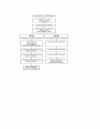SMART: self-management of anticoagulation, a randomised trial [ISRCTN19313375]
- PMID: 13678426
- PMCID: PMC240084
- DOI: 10.1186/1471-2296-4-11
SMART: self-management of anticoagulation, a randomised trial [ISRCTN19313375]
Abstract
Background: Oral anticoagulation monitoring has traditionally taken place in secondary care because of the need for a laboratory blood test, the international normalised ratio (INR). The development of reliable near patient testing (NPT) systems for INR estimation has facilitated devolution of testing to primary care. Patient self-management is a logical progression from the primary care model. This study will be the first to randomise non-selected patients in primary care, to either self-management or standard care.
Method: The study was a multi-centred randomised controlled trial with patients from 49 general practices recruited. Those suitable for inclusion were aged 18 or over, with a long term indication for oral anticoagulation, who had taken warfarin for at least six months. Patients randomised to the intervention arm attended at least two training sessions which were practice-based, 1 week apart. Each patient was assessed on their capability to undertake self management. If considered capable, they were given a near patient INR testing monitor, test strips and quality control material for home testing. Patients managed their own anticoagulation for a period of 12 months and performed their INR test every 2 weeks. Control patients continued with their pre-study care either attending hospital or practice based anticoagulant clinics.
Discussion: The methodology used in this trial will overcome concerns from previous trials of selection bias and relevance to the UK health service. The study will give a clearer understanding of the benefits of self-management in terms of clinical and cost effectiveness and patient preference.
Similar articles
-
A randomised controlled trial of patient self management of oral anticoagulation treatment compared with primary care management.J Clin Pathol. 2002 Nov;55(11):845-9. doi: 10.1136/jcp.55.11.845. J Clin Pathol. 2002. PMID: 12401823 Free PMC article. Clinical Trial.
-
Patient self management of oral anticoagulation in routine care in the UK.J Clin Pathol. 2007 Nov;60(11):1263-7. doi: 10.1136/jcp.2006.044008. Epub 2007 Jan 26. J Clin Pathol. 2007. PMID: 17259295 Free PMC article.
-
Point-of-Care International Normalized Ratio (INR) Monitoring Devices for Patients on Long-term Oral Anticoagulation Therapy: An Evidence-Based Analysis.Ont Health Technol Assess Ser. 2009;9(12):1-114. Epub 2009 Sep 1. Ont Health Technol Assess Ser. 2009. PMID: 23074516 Free PMC article.
-
Patient self-management of oral anticoagulation.Clin Lab Haematol. 2002 Aug;24(4):253-7. doi: 10.1046/j.1365-2257.2002.00443.x. Clin Lab Haematol. 2002. PMID: 12181030 Review.
-
Evolving models of warfarin management: anticoagulation clinics, patient self-monitoring, and patient self-management.Am Heart J. 1996 Nov;132(5):1095-100. doi: 10.1016/s0002-8703(96)90040-x. Am Heart J. 1996. PMID: 8892802 Review. No abstract available.
Cited by
-
Self-managed oral anticoagulation therapy.CMAJ. 2007 Mar 13;176(6):813; author reply 813-4. doi: 10.1503/cmaj.1060152. CMAJ. 2007. PMID: 17353543 Free PMC article. No abstract available.
-
Safety and effectiveness of point-of-care monitoring devices in patients on oral anticoagulant therapy: a meta-analysis.Open Med. 2007;1(3):e131-46. Epub 2007 Oct 16. Open Med. 2007. PMID: 21673942 Free PMC article.
-
Educational and behavioural interventions for anticoagulant therapy in patients with atrial fibrillation.Cochrane Database Syst Rev. 2017 Apr 5;4(4):CD008600. doi: 10.1002/14651858.CD008600.pub3. Cochrane Database Syst Rev. 2017. PMID: 28378924 Free PMC article.
-
Self-monitoring and self-management of oral anticoagulation.Cochrane Database Syst Rev. 2016 Jul 5;7(7):CD003839. doi: 10.1002/14651858.CD003839.pub3. Cochrane Database Syst Rev. 2016. PMID: 27378324 Free PMC article.
-
American Society of Hematology 2018 guidelines for management of venous thromboembolism: optimal management of anticoagulation therapy.Blood Adv. 2018 Nov 27;2(22):3257-3291. doi: 10.1182/bloodadvances.2018024893. Blood Adv. 2018. PMID: 30482765 Free PMC article.
References
-
- Taylor F, Ramsay M, Covell B, Gaminara L, Thompson D, Cohen H, et al. Management of expanding anticoagulation clinics: a role for general practitioners. Br J Gen Pract. 1995;45:153–158. - PubMed
Publication types
MeSH terms
Substances
Associated data
LinkOut - more resources
Full Text Sources
Medical


